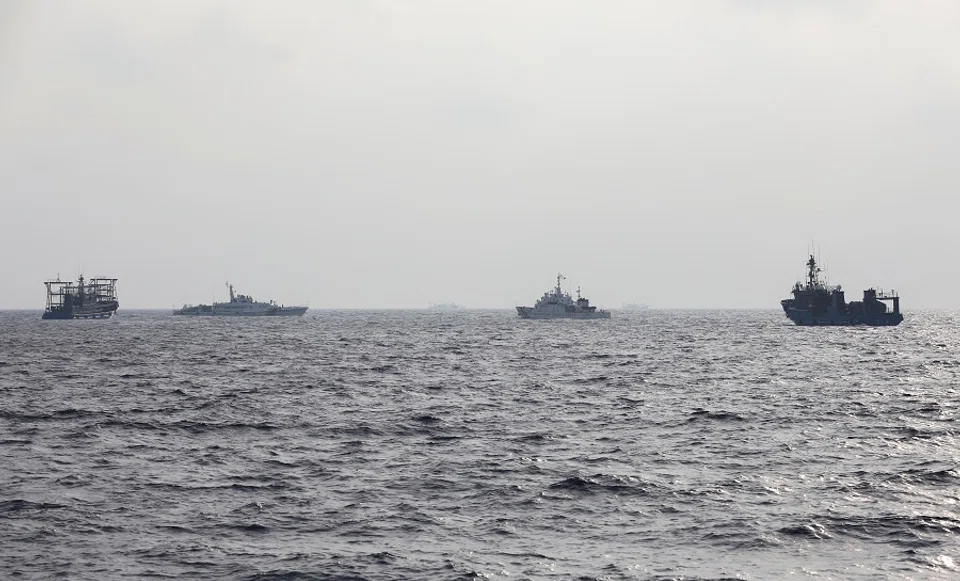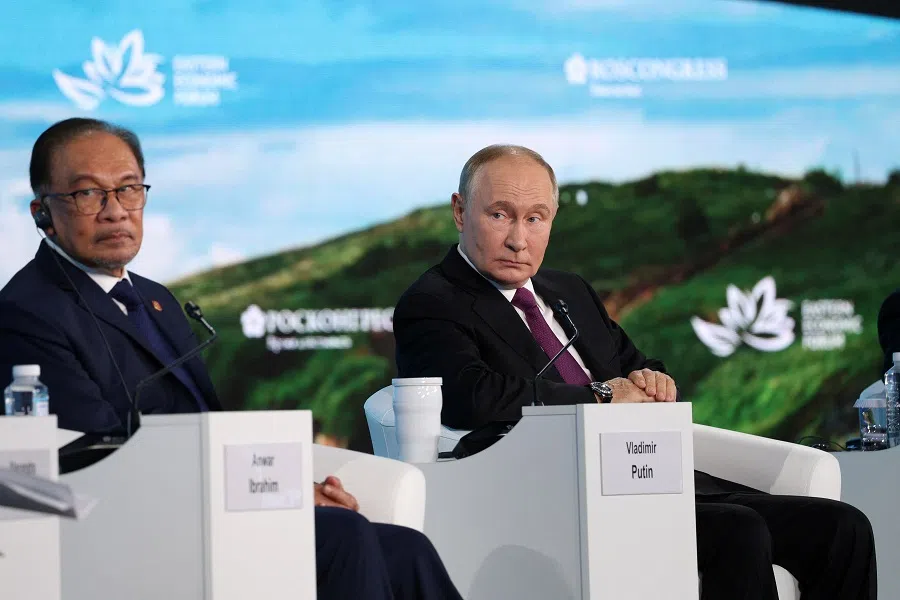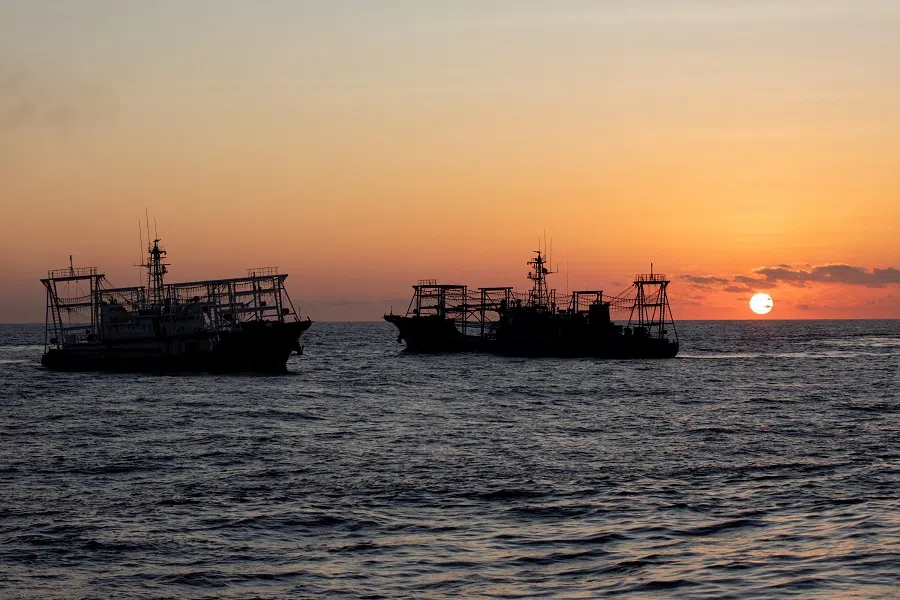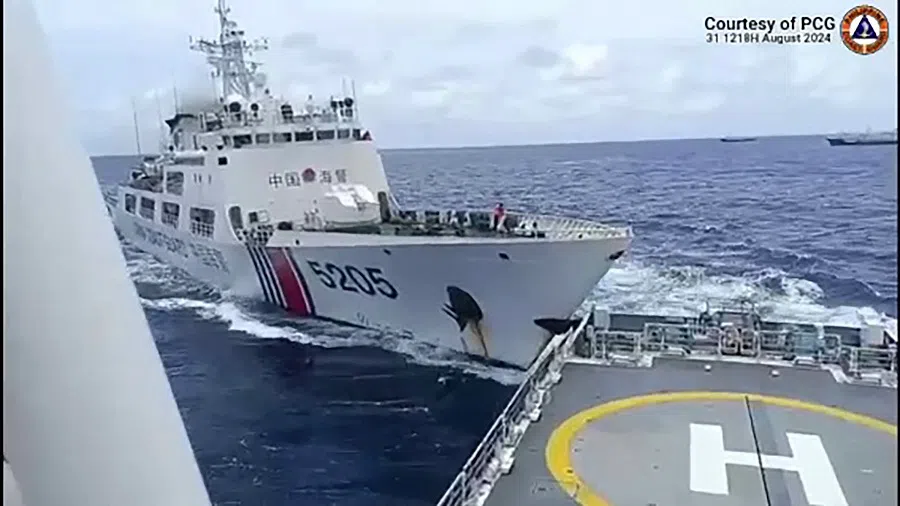Are the Philippines’ tough South China Sea tactics a risk to ASEAN centrality?
Malaysian academic Peter T.C. Chang worries that recent actions by the Philippines concerning the South China Sea disputes may jeopardise the collective well-being of ASEAN.

Philippine defence chief Gilberto Teodoro has warned that ASEAN could risk losing its relevance if it continues to go soft on China. However, others in the region are concerned that the Philippines’ hardline approach to the South China Sea crisis could pose an even greater threat to ASEAN centrality.
Last week, at the Eastern Economic Forum in Vladivostok, Malaysian Prime Minister Anwar Ibrahim invited Russian President Vladimir Putin to attend the ASEAN summit in Kuala Lumpur next year. In return, Putin extended an invitation to the Malaysian prime minister for the upcoming BRICS summit in Kazan, Russia, this October. Malaysia’s growing ties with Russia have raised concerns that the country may be aligning itself in the great power rivalry — a shift that could undermine Malaysia’s national interests and complicate its role as ASEAN chair in 2025.
In response, Anwar emphasised that, as a non-aligned nation, Malaysia has no intention of siding with the West against Russia, aiming instead to maintain balanced relations with all parties. He has previously affirmed that, under Malaysia’s chairmanship of ASEAN, the country will collaborate with all stakeholders to safeguard ASEAN’s interests and security.
South China Sea tensions paramount
Undoubtedly, the most urgent challenge facing ASEAN is the escalating tension in the South China Sea. In recent months, confrontations between the Philippine and Chinese coastguards have intensified, with skirmishes becoming more frequent and heightening the risk of open conflict.
They are committed to pursuing diplomatic resolutions and are willing to set aside differences to focus on broader mutual interests.

Earlier this month, Malaysia’s own territorial dispute with China came into the spotlight when a leaked classified document revealed China’s demand for Malaysian state-owned energy company Petronas to halt its oil exploration activities in the country’s exclusive economic zone (EEZ).
The leak was an embarrassment for both countries, which had recently celebrated the 50th anniversary of diplomatic relations. Beneath the public display of friendship, unresolved disputes and underlying tensions persist. When questioned about China’s demand, Anwar firmly asserted that Malaysia would not relent and would proceed with its oil exploration activities.
Anwar’s response underscores several critical points: first, contrary to perceptions of acquiescence, Malaysia has resolutely defended its territorial claims and sovereign rights within its EEZ. Since 2019, the Malaysian government has dismissed China’s nine-dash line claims as “ridiculous”. Second, despite ongoing disputes, Malaysia remains committed to seeking a peaceful resolution and aims to prevent these conflicts from escalating into a major confrontation. Finally, Malaysia recognises that these maritime disputes should not overshadow its broader relationship with China. The country is committed to setting aside these contested claims in pursuit of greater common good.
Other claimant states in the South China Sea dispute, such as Vietnam and Brunei, have similarly adopted a cooperative approach. They are committed to pursuing diplomatic resolutions and are willing to set aside differences to focus on broader mutual interests.

As the maritime dispute in Southeast Asia becomes increasingly entangled in the US-China rivalry, maintaining neutrality has emerged as a crucial strategy for ASEAN to preserve peace. Small countries, caught in the crossfire of great power competition, are strategically hedging their bets by avoiding alignment with either side.
By staying impartial in the ongoing great power rivalry, ASEAN stands a better chance of shaping its own destiny and maintaining peace, both within the region and globally.
Persevering with non-alignment and neutrality
Malaysia, for instance, remains committed to its non-alignment policy. Despite its criticism of the US’s support for Israel in the Gaza conflict, Malaysia continues to view the US as a valuable partner. While it has become a key participant of China’s Belt and Road Initiative, Malaysia has also endorsed President Biden’s Build Back Better World (B3W) initiative. Furthermore, despite forging new collaborations with the People’s Liberation Army, Malaysia maintains its longstanding tradition of joint exercises with the US navy.
Neighbouring Singapore is also navigating a delicate balancing act. Traditionally seen as a US-friendly state, Singapore recently announced its largest military exercise to date with China.
Neutrality is crucial for preserving ASEAN centrality. By staying impartial in the ongoing great power rivalry, ASEAN stands a better chance of shaping its own destiny and maintaining peace, both within the region and globally.
The Philippines, an outlier
However, amid its escalating tension with China, the Philippines has sought support from the US through various military alliances and a mutual defence treaty. In doing so, it risks not only being drawn into a great power rivalry but also becoming a proxy in it.
Previously, the Philippines sought support from its neighbours by proposing separate codes of conduct with Vietnam and Malaysia. Nevertheless, these efforts failed, as they were perceived as attempts by Manila to drive a wedge between ASEAN and China.
There is growing concern that the Philippines could become “Asia’s Ukraine”, a scenario that would not only devastate its economy but also destabilise the region.

The recent leak of a classified document involving Malaysia and China was first reported by a Philippine media outlet, raising suspicions that a third party may be attempting to stoke tensions in the Malaysia-China relations.
There is growing concern that the Philippines could become “Asia’s Ukraine”, a scenario that would not only devastate its economy but also destabilise the region. However, unlike the EU’s support for Kyiv, Manila may not receive comparable backing from ASEAN.
Non-interference is a foundational principle of ASEAN. But when a member state’s actions jeopardise the collective well-being, legitimate concerns may arise. In July, Malaysia’s Foreign Minister Mohamad Hasan, in a seemingly veiled criticism of the Philippines, cautioned that attempts by any ASEAN member to involve external powers in resolving its issues could create uncertainty in the region.
In August, in an apparent response to the Malaysia foreign minister’s remarks, Philippine defence chief Teodoro warned that ASEAN must stand up to China or risk becoming irrelevant. However, some in the region fear that it is the Marcos administration’s current approach to the South China Sea crisis that may pose a graver risk to ASEAN’s centrality.





